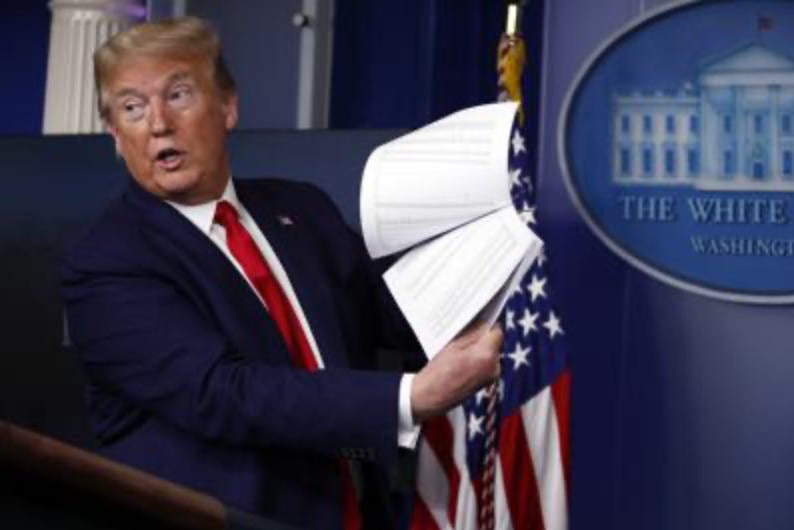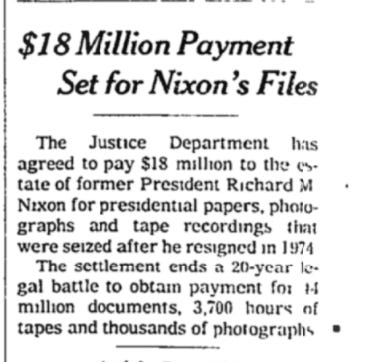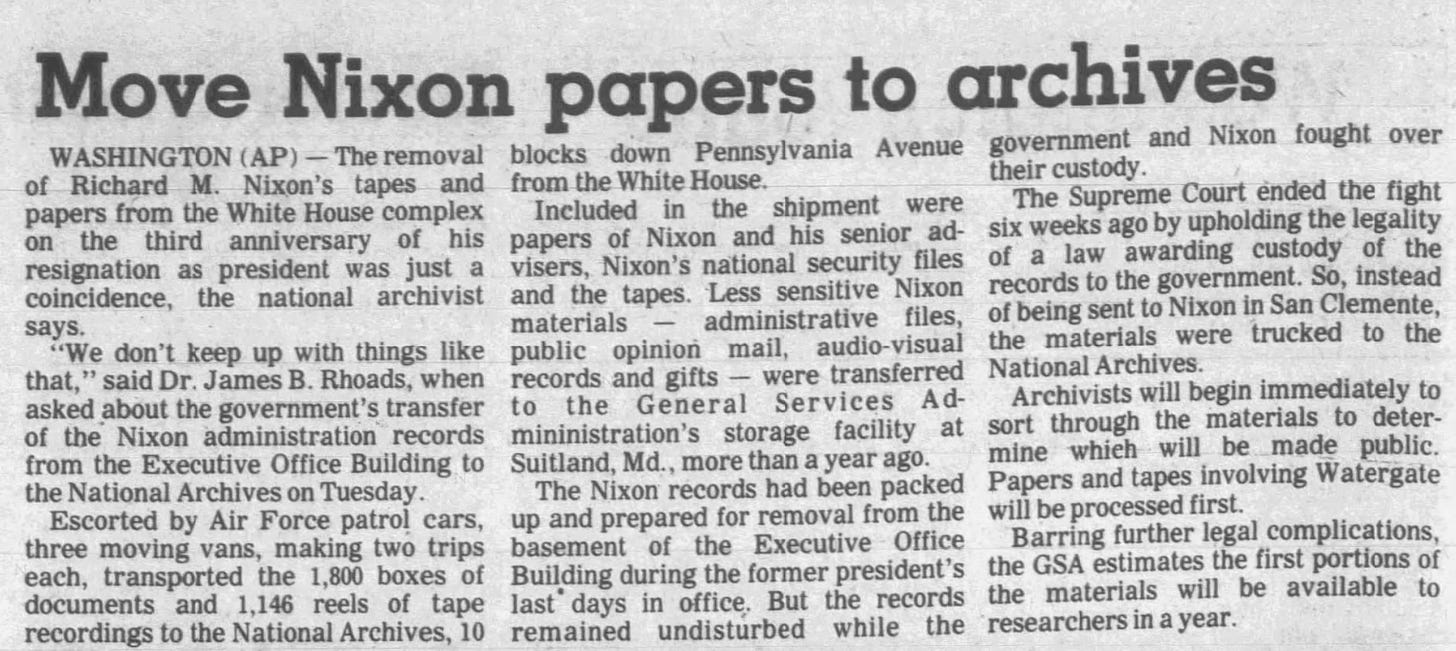True to form, Donald Trump celebrated his arrest yesterday with a speech before his most loyal sycophants.
It was the usual firehose of falsehoods. Among other lies, the former president asserted that “according to the Presidential Records Act, which was a big deal, I was supposed to negotiate with NARA” about turning over all the classified materials.
As many of us keep screaming, this is absolutely, flatly 100% false, as the PRA notes explicitly that the very second a president leaves office, their administration’s papers immediately become the property of the United States of America. There’s no debate; there’s no negotiation.
The letter of the law is crystal clear — clear enough for even Donald Trump to read — so what’s going on?
Well, I’d imagine that Trump has this payday in mind:
The Nixon estate’s $18 million payday was, in many ways, part of a long-running feud between the National Archives and Nixon that began even before his resignation.
You’ll likely remember the famous moment in which an embattled President Nixon insisted, in a soundbite for the ages, “I am not a crook.” But what you might not know is that comment had nothing to do with the allegations about the Watergate break-in.
As I noted at Esquire, Nixon was talking about a different scandal that had cropped up in November 1973, one that involved an illegal tax deduction involving the donation of his vice presidential papers from the Eisenhower administration. It was comparatively small and settled quickly, but as we all know, Nixon wasn’t one to let a grudge go easily.
When he resigned less than a year later, there were legitimate concerns that the president might destroy the papers that would provide evidence against him. (And, one more time, federal indictments were looming for Nixon.) Presidents had previously been allowed to take their papers with them, but of course that was because those presidents all left office in good standing and their papers didn’t contain evidence of crimes. Nixon changed everything.
When he resigned in August 1974, Congress immediately passed a law confiscating the materials that the disgraced president left behind, but true to form, Nixon fought to hang on to his papers for three years, until the Supreme Court finally settled the dispute in 1977.
It was out of that long fight — a fight that stretched on in other ways until 2000 — that the Presidential Records Act of 1978 was born. Not wanting to relive the long struggle over a president’s records ever again, Congress passed the measure which ensured (in theory, at least!) that all of a president’s records were immediately transferred to the Archives upon the end of an administration.
That’s the law that’s governed every president since Nixon. Yes, even Trump!
But Trump apparently thought he deserved the huge payday the Nixon estate received, regardless of the changes to the law.
And because of that greed, now he’s going to pay the price.







Boy, thanx for coming to Substack! Left Twitter a while back to start my thing here and missed you.
I was a student of Bert Rhoads (Archivist of the US, 1968-79). I sure wish he was still around to throw one of his student pot lucks, this weekend. That would be fun.